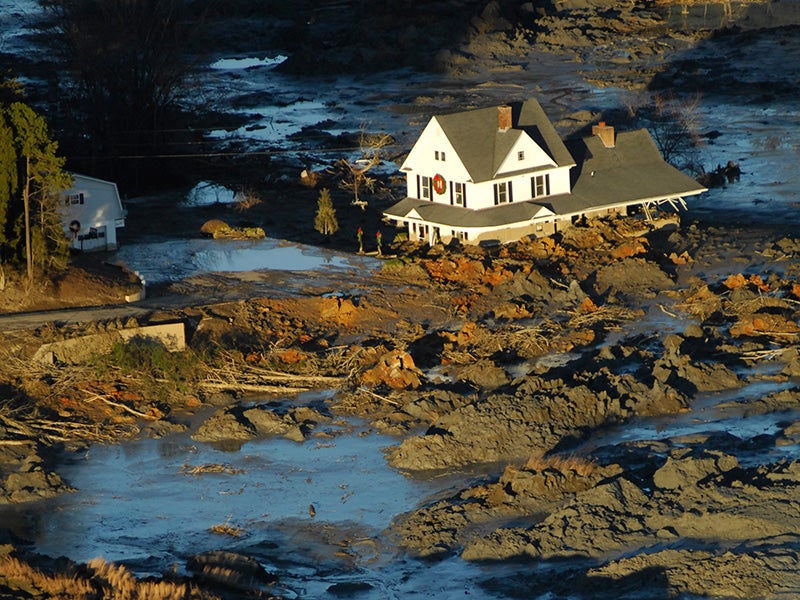Five More Things You Need to Know About Coal Ash
Five things that the 60 Minutes investigation on coal ash didn't tell you.

This page was published 9 years ago. Find the latest on Earthjustice’s work.
Last night on 60 Minutes, journalist Leslie Stahl made Lynn Good, the CEO of Duke Energy, look bad during an episode about coal ash—a byproduct of coal burning that’s dumped into mostly unlined and unmonitored ponds across the country.
As Good tried to smile and defend the decades of delay in cleaning up coal ash sites by arguing that more study is needed, the veteran newswoman blew right through her smokescreen.
“Studying is code for stalling,” said Stahl.
And stall they have.
Despite several high profile coal ash spills and an Earthjustice lawsuit, both the coal industry and the federal EPA have dragged their feet on strengthening regulations for coal ash for years. The most recent spill occurred last February, when a coal ash pond owned by Duke Energy unleashed thousands of tons of coal ash into North Carolina’s Dan River.
As Good delays cleanup and denies ongoing harm, Duke’s leaking dams threaten real people—and not just in North Carolina, where the company handles more than 100 million tons of coal ash waste.
The $6.4 million/year CEO undoubtedly does not live next to one of the nation’s 1,070 toxic coal ash ponds—70 percent of which are in areas where income is below the national average. But there are plenty of people who do.
60 Minutes deftly exposed a CEO unwilling to take timely action to protect the health and environment of North Carolinians. Here are five more things you need to know about Duke Energy and coal ash:
- The amount of toxic coal ash that has spilled in the U.S. in the last six years is more than 100 times the amount of oil that spilled in the Exxon Valdez disaster.
- While the utility industry wants more time, 2,175 days have already passed since the 1.2 billion-gallon coal ash spill in Kingston, TN, and not a single regulation in the nation has been changed to prevent another major toxic disaster.
- Duke Energy has not only polluted water and violated environmental laws at every plant it operates in North Carolina, the company also has contaminated water at its dumps across the country.
- Serious drinking water contamination has occurred near Duke’s Buck Plant in Salisbury, NC, where the powerful carcinogen hexavalent chromium was discovered, yet Duke has yet to supply the affected families with bottled water.
- Duke, as well as the entire utility industry, is hiding under the veil of “national security concerns” to continue blocking the public from obtaining information about its dangerous coal ash dams.
Clearly what Good thinks is good—for Duke and the rest of the utility industry—is injurious to the nation’s health and environment. Let’s end this double-talk, delay and damage. Protect the nation from toxic coal ash by calling the White House (tel: 202-456-1111), and tell President Obama that you want coal ash listed as a hazardous waste.
Check out the entire 60 Minutes interview.
Specializing in hazardous waste law, Lisa is an expert on coal ash, a toxic byproduct of burning coal that burdens communities around the nation.
Established in 2008, Earthjustice’s Northeast Office, located in New York City, is at the forefront of issues at the intersection of energy, environmental health, and social justice.
